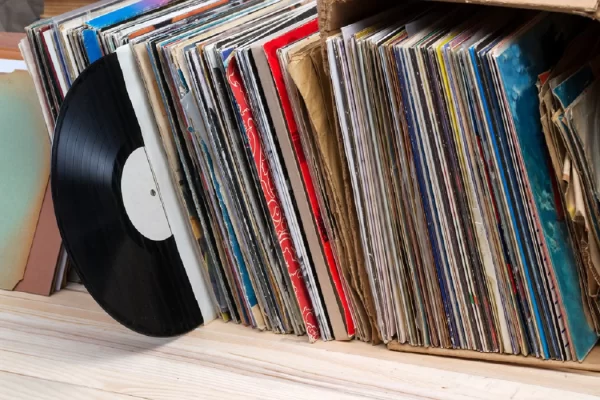Grande’s ‘positions’ Is Fun, But Nothing Groundbreaking

Ariana Grande’s positions was released on October 30.
Expectations were high for Ariana Grande’s sixth studio album. This latest release follows the three most successful years of Grande’s career: two No. 1 albums on Billboard’s Hot 200, four No. 1 debuts on Billboard’s Hot 100, an international tour that brought out 1.3 million fans and grossed over $140 million. Predictably, the Internet had a lot to be excited for on October 14 when she announced via Twitter to expect a new album by the end of the month.
Grande put out her lead single, “positions,” on the 23rd and followed with the entire LP of the same name only a week later. And positions is no failure by any standards—Grande’s lead single added to her record-breaking number of debuts atop Billboard’s Hot 100, she easily topped Billboard’s Hot 200 for multiple weeks as she had with her past two albums, and she amassed millions of Spotify streams, becoming the most listened artist on the platforms in the days following her release. But something feels different—there wasn’t the same ubiquitous fanfare she had seemingly effortlessly garnered with previous releases, not the same viral Internet memes and extended discussion of tracks on the albums. But why, and what does it mean for Grande?
Fans know that her previous projects have been underscored with their fair share of tragedy and trauma: the bombing at her concert in Manchester and the death of ex-boyfriend Mac Miller, each of which prompted some of Grande’s most personal music. positions as a body of work doesn’t hold up in those regards. Rather, what Grande loses in emotional depth, she fills with clever sexual innuendos (look no further than the track name “34+35”). The title track is catchy, but doesn’t hold the same radio staying power as her past hits. There are even notes of theater (“my hair” and “love language”), which feel like steps backward to albums like Yours Truly, her debut off the heels of her Nickelodeon career. There is no mission statement to this album, and because of that, there are fewer standouts tracks—instead it’s one extended, sultry romp of R&B-tinged whistle notes.

The album’s highlight “pov,” shows position’s potential. It’s sweeping, her words are properly enunciated, and the production isn’t crowded. But most of all, it brings the element that centered her last two albums: vulnerability, speaking to learning to love yourself in the same way that your partner does.
On the other hand, a general disappointment with positions could be a greater reflection on the way society treats female artists, especially those in the pop landscape. The album isn’t inherently bad, it’s just a different kind of album. Female artists in the industry have a pressure to constantly reinvent themselves by creating new personas and versions of themselves that feel exciting and refreshing (just look at Taylor Swift!), and over the past two album cycles, Grande’s personal tragedy has lent itself well to this phenomenon. Positions is not the reinvention that fans have come to expect, and to appreciate and understand the album, we must acknowledge that it is the kind of music that Grande wants to create, and there is value in that as well.


















